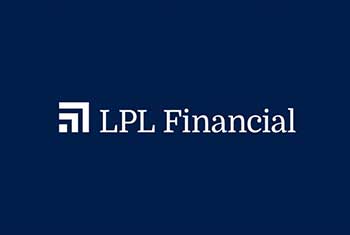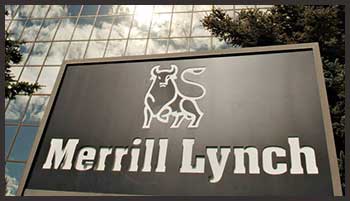When it comes to choosing a financial services firm to help you manage your investments and reach your financial goals, two big names stand out: LPL Financial and Merrill Lynch. Both LPL Financial and Merrill Lynch offer a wide range of financial products and services, including brokerage and advisory services, banking and lending solutions, and retirement planning.
However, there are some key differences between the two firms that are important to understand when deciding which is the better fit for your needs.
A Brief Comparison Table
| Feature | LPL Financial | Merrill Lynch |
| Type of firm | Independent broker-dealer | Wirehouse brokerage (owned by Bank of America) |
| Number of financial advisors | Approximately 20,000 | Approximately 14,000 |
| Minimum account size | Varies by advisor, often $50K – $100K | Generally $250K for managed accounts |
| Investment products offered | Stocks, bonds, mutual funds, ETFs, annuities | Stocks, bonds, mutual funds, ETFs, annuities |
| Account types | Brokerage accounts, retirement accounts, banking services | Brokerage accounts, retirement accounts, banking services |
| Advisory services | Financial planning, portfolio management, retirement planning | Financial planning, portfolio management, retirement planning |
| Trading platforms | Web-based platform, mobile app | Merrill Edge online platform, Merrill mobile app |
| Locations | Mainly US | Global offices in over 35 countries |
| Fees | Vary by advisor, transaction fees, account fees | Vary by account, advisor fees, transaction fees |
Overview Of LPL Financial
LPL Financial is one of the largest independent broker-dealer firms in the country. Headquartered in Boston, LPL Financial has over 17,000 financial advisors across the U.S. The company serves both individual investors and independent financial advisors.

Some key facts about LPL Financial:
- Offers brokerage and advisory services, including stocks, bonds, mutual funds, ETFs, options, annuities, and more.
- Over 4 million customer accounts and $1 trillion in custodied assets.
- Uses an open architecture platform, giving clients and advisors access to a wide range of non-proprietary investment products.
- Advisors have the freedom to operate as an independent practice under the LPL brand and platform.
- Serves a variety of clients including individuals, high-net-worth investors, and small to mid-sized retirement plans.
Overview Of Merrill Lynch
Merrill Lynch is also one of the largest brokerage firms in the U.S. Headquartered in New York City, Merrill Lynch employs over 14,000 financial advisors worldwide.
Here are some key facts about Merrill Lynch:

- Offers brokerage and advisory services including stocks, bonds, mutual funds, ETFs, annuities, and more.
- Part of Bank of America Corporation with extensive banking and lending capabilities.
- Over $2.7 trillion in client assets under management.
- Uses a combination of proprietary products and non-proprietary products.
- Serves a global clientele including individual investors, businesses, corporations, endowments, foundations, and municipal governments.
- Particularly strong in serving high-net-worth and ultra-high-net-worth investors.
Now that we’ve provided an overview of both firms, let’s compare the key pros and cons of LPL Financial Vs. Merrill Lynch.
Also Read: Comparison Between UBS And Merrill Lynch.
LPL Financial Pros
Access to a Wide Range of Investment Products
One of the biggest advantages of LPL Financial is the open architecture investment platform. This provides clients and advisors access to a diverse selection of investments from many top fund families. There are no proprietary products pushed on clients.
Lower Account Minimums
LPL Financial has relatively low minimum account balances compared to other large brokerages. This makes LPL accessible to newer investors who are just starting out and don’t have large portfolios yet. Minimums depend on account type but can be as low as $2,500 to open a brokerage account.
Support for Independent Advisors
LPL Financial provides the operational infrastructure and regulatory compliance support for over 17,000 independent financial advisors across the country. Advisors can focus on serving clients while LPL provides back-office support.
Competitive Commissions and Fees
LPL Financial offers competitive commissions on stock and ETF trades. Advisory account fees are also reasonably priced compared to other large broker-dealers. This makes LPL an affordable choice for many investors.
LPL Financial Cons
Mixed Reviews on Research and Trading Tools
While LPL Financial offers research and trading platforms like ClientWorks and Model Wealth Portfolios, some reviewers say the tools and research lack depth compared to rivals. The trading experience is just average.
No Brick-and-Mortar Branch Locations
Since LPL Financial advisors are independent operators, the company does not have local branch offices like some other national brokerages. This can be a disadvantage for investors who want an in-person office to visit. However, LPL advisors can meet locally with clients.
No Banking or Lending Services
LPL Financial does not provide traditional banking, lending, or cash management services. Investors who want an integrated brokerage and bank account will need to look elsewhere. However, LPL does facilitate lending solutions through third parties.
Not Ideal for Sophisticated Active Traders
While suitable for long-term buy-and-hold investors, LPL is likely not the best fit for sophisticated active stock and options traders. The trading platforms and research capabilities may not be robust enough for advanced trading strategies.
Here is a video to know more about LPL!
Merrill Lynch Pros
Extensive Resources and Research
Merrill Lynch employs a large research team that produces equity, market, and economic research for clients. The investment analysis capabilities are extensive. Merrill also offers proprietary planning tools like Merrill Lynch WealthView that provides analytics and scenario modeling.
Integrated Banking and Lending
With Bank of America, Merrill Lynch can offer integrated banking, lending, and wealth management. Clients can work with one point of contact to address both banking and investing needs. Mortgages, business loans, and cash management can all be handled seamlessly along with an investment account.
Prestigious Brand Name and Reputation
Merrill Lynch is one of the most preeminent brands in financial services with a long track record of serving clients, especially high-net-worth investors. The reputation gives clients confidence they are working with a trusted leader.
Ideal for Sophisticated Traders
Active traders who execute sophisticated option strategies and want robust trading tools and market insights will appreciate Merrill’s trading platform and technology capabilities. Merrill caters well to high-volume traders.
Merrill Lynch Cons
High Minimum Account Balances
Merrill Lynch imposes higher minimum account balances than many other firms, making it more restrictive for new investors to open accounts. Minimums vary but can be $50,000 or more for some account types. However, the minimums are lower for Bank of America customers.
Uses Some Proprietary Products
While clients have access to many non-proprietary investments, advisors do utilize some proprietary Merrill and BofA funds and products at times. There may be a slight bias toward internally managed investments.
Higher Account Fees
Managing money at Merrill Lynch comes with higher fees compared to competitors for similar investment management and advisory services. The premium brand name comes with premium pricing. Investors with smaller portfolios may find better value elsewhere.
Reputation Damaged During Financial Crisis
Merrill Lynch suffered reputational damage surrounding the 2008 financial crisis due to poor risk management and subprime mortgage exposure. However, the firm has largely rebounded since being acquired by Bank of America.
Now that we’ve explored the key strengths and potential drawbacks of both LPL Financial and Merrill Lynch, let’s summarize some key considerations for which firm may be a better fit.
Also Read: Comparison Between Lendingtree And Credit Karma.
Choosing Between LPL And Merrill Lynch
Here are some guidelines on what types of investors may benefit from LPL Financial versus Merrill Lynch:
LPL Financial may be better for:
- Investors who want access to non-proprietary investment products
- Those with smaller account balances
- Investors who prefer working with an independent local financial advisor
- Those seeking competitive fees and account minimums
Merrill Lynch may be better for:
- Investors who want integrated banking and lending
- Clients who value prestige and brand recognition
- Sophisticated traders and options investors
- High-net-worth and ultra-high-net worth investors
- Those who want extensive research and planning tools
Neither firm is necessarily “better” overall. The right choice comes down to personal preferences and matching a firm’s strengths to your priorities as an investor.
When evaluating LPL Financial Vs. Merrill Lynch, it’s important to look beyond the brand names. Consider the specific products, services, costs, account minimums, and advisor relationships that are optimal for your situation. Analyze how well each firm’s offerings and client focus aligns with your needs and preferences. This will lead to selecting the firm that provides the best fit.
Frequently Asked Questions (FAQ)
Yes, LPL Financial is considered a safe and reputable firm for investors. As one of the largest independent broker-dealers in the industry, LPL Financial is heavily regulated by bodies like FINRA, the SEC, and state regulators. Client assets held by LPL Financial are protected by SIPC insurance up to $500,000, with additional account protection through Lloyd’s of London. Overall, LPL Financial has a strong track record of keeping client investments safe.
Compared to other large brokerage firms, LPL Financial’s account fees and investment costs are reasonably competitive and affordable for most individual investors. Their fees are not the absolute lowest in the industry, but LPL is certainly not among the high-end in terms of how much they charge clients for accounts and investment products. Investors can ask their advisor for full transparency into the fees to compare to other brokers.
There is no definitive “better” between LPL Financial and Vanguard. LPL is a full-service brokerage that provides access to securities trading, investment advice, and financial planning. Vanguard is more focused on buy-and-hold mutual fund investing and passive index fund strategies with minimal advice. Vanguard offers very low-cost index funds, while LPL provides more personalized service and broader investment product access. Each firm suits different types of investors.
Yes, Merrill Lynch is one of the most recognized and prestigious brands in the financial services industry with a long-running history serving clients. The company has weathered some reputation damage related to the 2008 financial crisis when it was acquired by Bank of America. However, Merrill Lynch remains a respected household name among brokerage and wealth management firms.
Also Read: Comparison Between T. Rowe Price And Merrill Lynch.
The Bottom Line
When choosing between industry titans like LPL Financial and Merrill Lynch, it pays to look beyond the brand names. Carefully examine each firm’s particular strengths and weaknesses, weighing factors like services offered, account minimums, fees, investment product lineup, advisor relationships, and more.
Consider which firm’s offerings align closer to your personal financial needs and preferences. This will lead to selecting the brokerage that serves you best over the long-term.

